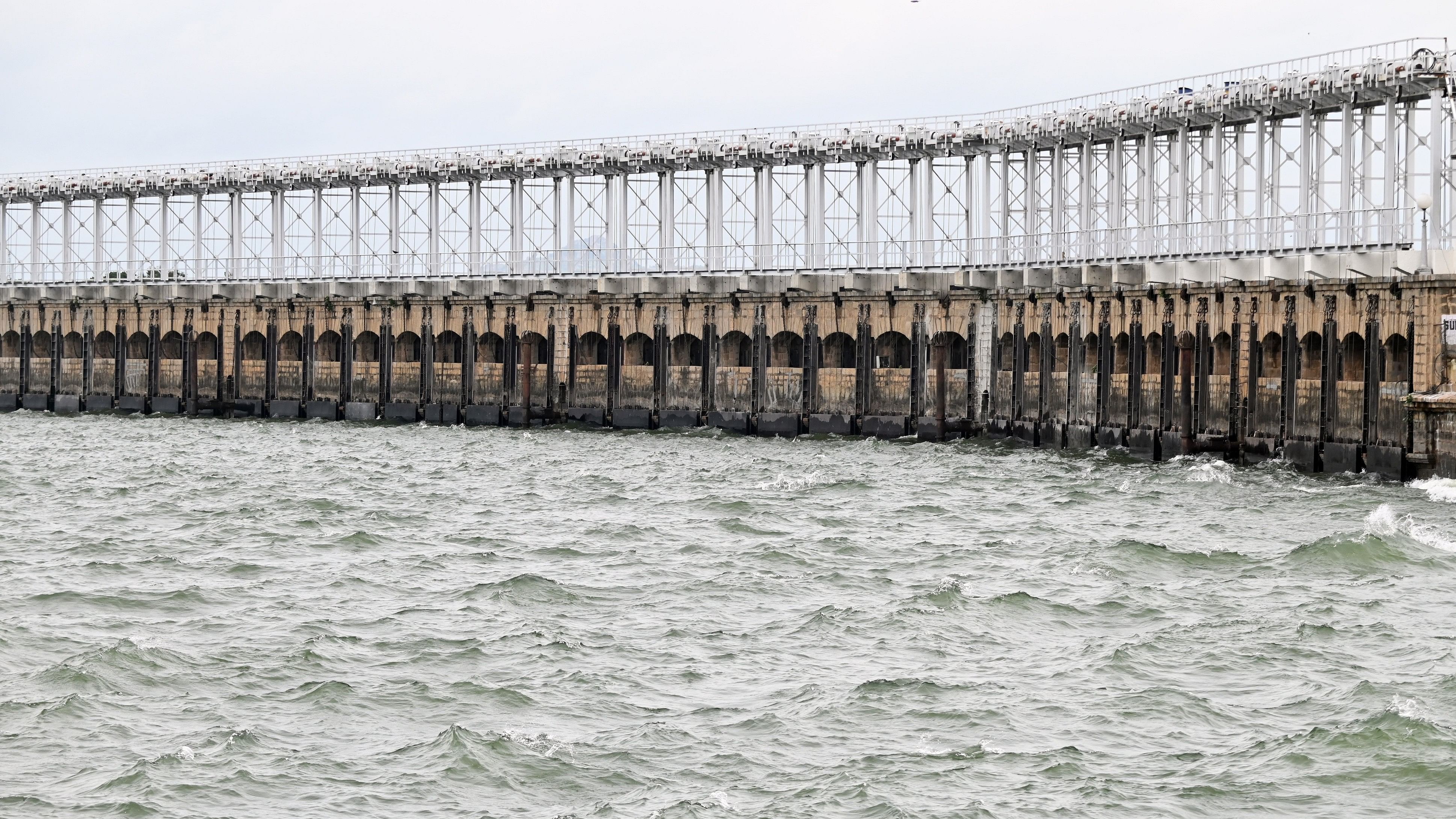
Krishnaraja Sagar reservoir in Srirangapatna taluk, Mandya district. Representative image.
Credit: DH Photo
New Delhi: The Central Water Commission (CWC) has said the current water storage levels has recorded an increase of 126 per cent compared to last year's corresponding period and 119 per cent of the 10-year average.
As of August 29, the total live storage in these reservoirs stands at 144.333 billion cubic metres (BCM), which is 80 per cent of their total capacity.
This marks an increase of 126 per cent compared to last year's corresponding period and 119 per cent of the 10-year average, referred to as Normal storage.
The CWC's report highlights a generally favourable water storage situation across the country, with the overall storage position being better than both last year's and the Normal storage levels.
The 155 monitored reservoirs, which include 20 hydroelectric projects, have a combined capacity of 180.852 BCM, contributing to about 70.15 per cent of the nation's total estimated live storage capacity.
Despite the positive national outlook, the Northern region, encompassing Himachal Pradesh, Punjab and Rajasthan, has recorded a decline in storage levels. The region's 11 monitored reservoirs currently hold 11.866 BCM, which is only 60 per cent of their capacity. This is a notable decrease from the 83 per cent recorded last year and the 79 per cent of normal storage.
The Eastern region, including Assam, Jharkhand, Odisha, West Bengal, Tripura, Nagaland and Bihar, shows improvement.
The region's 25 reservoirs have a combined storage of 13.636 BCM, accounting for 66 per cent of their capacity.
This represents a significant increase from last year's 46 per cent and exceeds the normal storage of 61 per cent.
In the Western region, covering Gujarat, Maharashtra and Goa, storage levels have also seen an uptick. The region's 50 reservoirs hold 33.582 BCM, or 90 per cent of their capacity, up from 71 per cent last year and 66 per cent of normal storage.
The Central region, comprising Uttar Pradesh, Uttarakhand, Madhya Pradesh and Chhattisgarh, has also shown positive storage trends. The region's 26 reservoirs currently hold 40.478 BCM, which is 84 per cent of their capacity. This is an improvement from last year's 73 per cent and the Normal storage of 71 per cent.
The Southern region, including Andhra Pradesh, Telangana, Karnataka, Kerala and Tamil Nadu, exhibits significant storage gains. The region's 43 reservoirs have a combined storage of 44.771 BCM, which is 82 per cent of their capacity. This is a substantial increase from last year's 49 per cent and the normal storage of 63 per cent.
The CWC's analysis indicates that several river basins, including the Ganga, Mahanadi, Narmada and Godavari, are reporting better-than-normal storage levels. Meanwhile, basins like the Indus and East Flowing Rivers between Pennar and Kanyakumari are categorised as deficient.